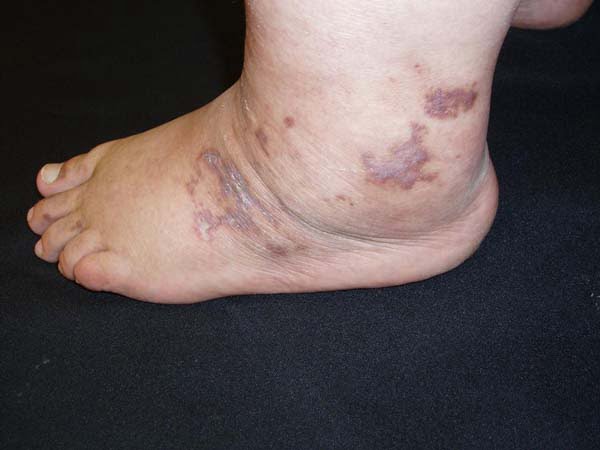Antiphospholipid syndrome
Antiphospholipid Syndrome (APS) is a condition where the immune system mistakenly produces antibodies that attack the body’s tissues. These antibodies can lead to the formation of blood clots in arteries and veins. Key points about APS include:
Symptoms and Complications:
Blood Clots: APS can cause blood clots in various locations, such as legs, lungs, kidneys, and spleen.
Pregnancy Complications: During pregnancy, APS may result in miscarriage or stillbirth.
Stroke Risk: Young individuals with APS, even without known cardiovascular risk factors, are at risk of stroke.
Transient Ischemic Attack (TIA): Similar to a stroke but with no permanent damage.
Rash: Some people develop a red rash with a lacy pattern.
Less Common Symptoms: Neurological symptoms (headaches, seizures), cardiovascular disease (heart valve damage), and low blood platelet counts (thrombocytopenia).
Treatment:
While there’s no cure, medications can reduce the risk of blood clots and miscarriage.
When to Seek Medical Attention:
Unexplained bleeding from the nose or gums.
Unusually heavy menstrual periods.
Vomiting bright red blood or coffee-ground-like material.
Black, tarry stool or bright red stool.
Unexplained abdominal pain.
Emergency Signs:
Stroke: Sudden numbness, weakness, or paralysis of face, arm, or leg.
Pulmonary Embolism: Shortness of breath, chest pain, and coughing up blood-streaked mucus.
Deep Vein Thrombosis (DVT): Swelling, redness, or pain in a leg or arm.
Causes:
APS occurs when the immune system mistakenly produces antibodies that increase blood clotting.
It can be associated with autoimmune disorders or develop without an underlying cause.
Risk Factors:
More common in women.
Associated with other autoimmune conditions (e.g., lupus).
Having APS antibodies increases the risk of blood clots, especially during pregnancy, immobility, surgery, smoking, and certain medications.
Complications:
Kidney Failure: Reduced blood flow to the kidneys.
Stroke: Brain blood flow disruption leading to neurological damage.
Cardiovascular Problems: Leg blood clot damage to vein valves.
Lung Issues: High lung blood pressure and pulmonary embolism.
Pregnancy Complications: Miscarriages, stillbirths, preeclampsia, and fetal growth issues.
Rarely, severe APS can cause rapid multiple organ damage.
| Aspect | Summary |
|---|---|
Overview | APS involves immune system antibodies attacking body tissues, leading to blood clots. |
Symptoms | – Blood clots (legs, lungs) – Repeated miscarriages – Stroke – Rash (lacy pattern) |
Less Common Symptoms | – Neurological symptoms – Cardiovascular disease – Low blood platelet counts |
Diagnosis | Blood tests for APS antibodies, confirmed over 12 weeks |
Treatment for Clots | – Heparin (fast-acting) – Warfarin (pill form) – Aspirin |
Other Potential Drugs | – Hydroxychloroquine – Rituximab – Statins (more research needed) |
Pregnancy Management | – Heparin or heparin with aspirin – Avoid warfarin |
Self-Care Tips | – Prevent injury and bleeding – Be cautious with medications and diet |
Preparing for Appointment | – Gather relevant information – Prepare questions for your doctor |


